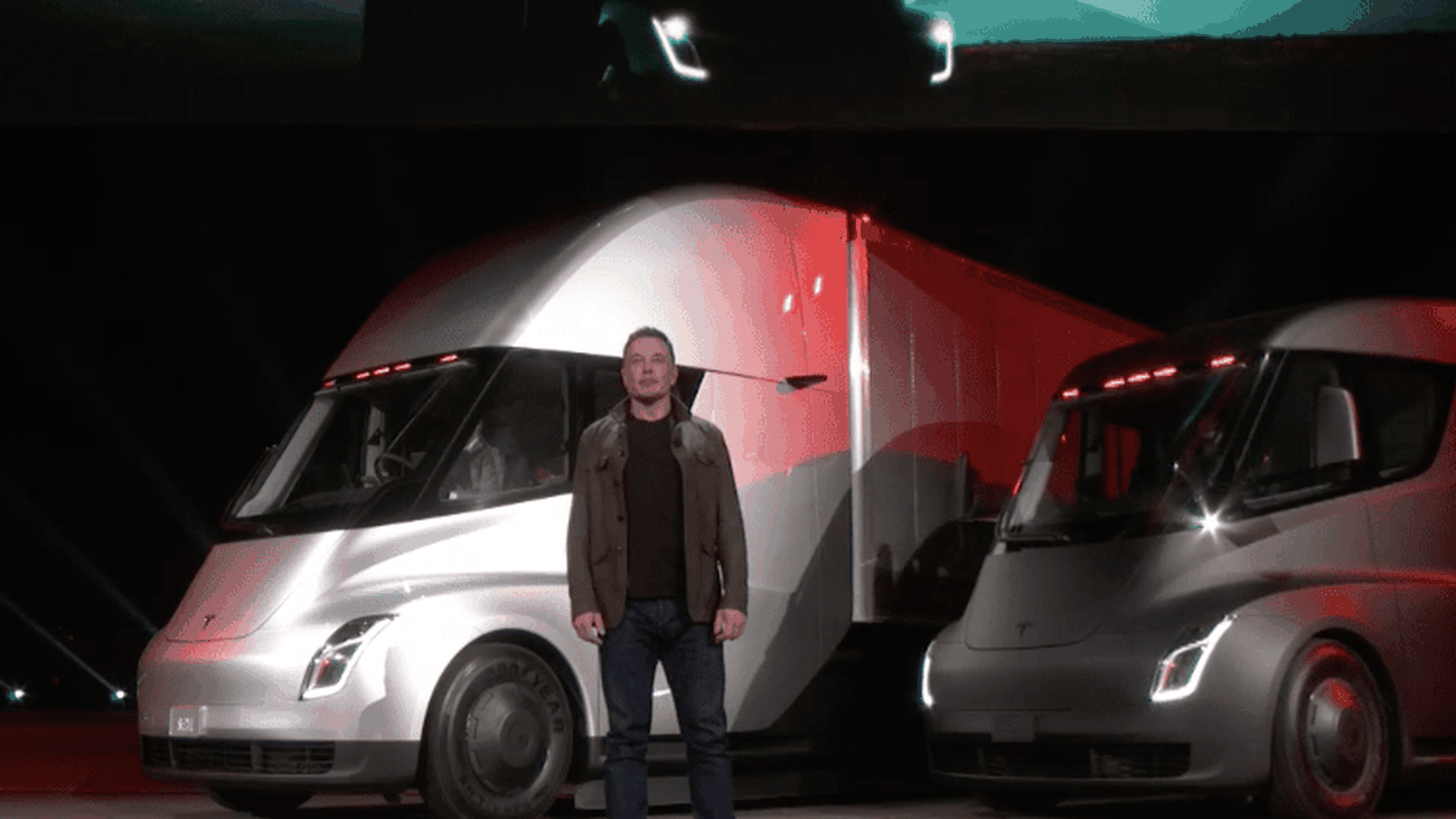Elon Musk unveils an electric semi-truck
Add Axios as your preferred source to
see more of our stories on Google.

Screenshot from Tesla live feed
In a typically showy ceremony in Southern California last night, Tesla CEO Elon Musk unveiled a sleek prototype electric semi-truck that he said will travel 500 miles on a charge, go zero to 60 mph in 20 seconds fully loaded, and charge most of the way in 30 minutes while a driver rests and eats. He appeared to say that the vehicle will be able to operate semi-autonomously in convoy, which would be the first step to self-driving trucks.
Why it matters: Musk did not say how much the truck will cost, but that it will be cheaper to operate than a standard diesel. If he is able to deliver the semi-truck as described, it seems likely to shake up the freight market just as he has the car business. Experts expect semi-truck traffic to surge in the coming decades as the global population grows to 9 billion people.
The unveil in an airport hanger in Hawthorne, CA., came as Musk is confronting doubts about his ability to pull off arguably his most important project of all — the scale-up of the Model 3, the flagship mainstream-priced electric that he has touted as Tesla's route to the mass market, and the jump-starting of a global electric car industry.
Tesla has taken more than 450,000 reservations at $1,000 apiece for the Model 3, which launched in July, and he was supposed to be turning out 5,000 of them a week by now. But, while making high-profile announcements about a Hyperloop, Space-X launches and now the prototype semi-truck, he has failed to create a standard automated assembly line for the Model 3, so his workers are building them in part by hand, and only by the dozen. As a result, Tesla's sky-high share price has plunged by about 19% over the last two months, closing at $312.50 yesterday.
- Yet the semi-truck launch, with unexpected specs including a far-more-than-expected range, seems likely to wow his fans and quiet at least some of his critics. Musk said the average truck trip is less than 250 miles, which meant that a driver could do a round trip without recharging. Still, Musk said the truck's battery pack, built into the floorboard, can be charged to 80% of capacity in 30 minutes. He said solar-powered "mega-charging" stations for the trucks would be installed worldwide, and would be priced at 7 cents a kilowatt.
- The cost per mile would be $1.26, compared with $1.51 for a diesel-operated truck. If the semi-truck is operated in a convoy, he said, the efficiencies took the operating cost below $1 a mile, and made them cheaper than moving freight by train.
- The two details — range and recharge time — were crucial, and they dispelled the most profound doubts about the truck. In addition, he said standard equipment will include automatic breaking, lane-keeping and forward collision warning.
